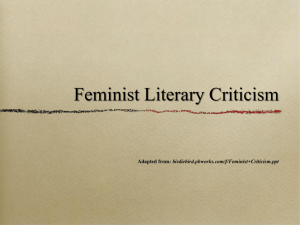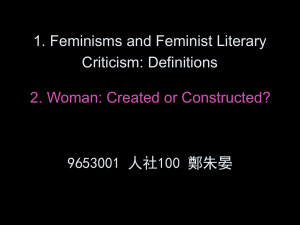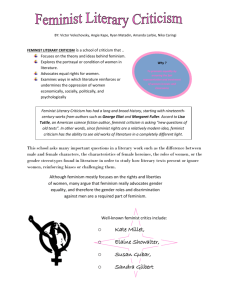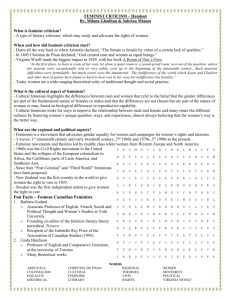The AP Student
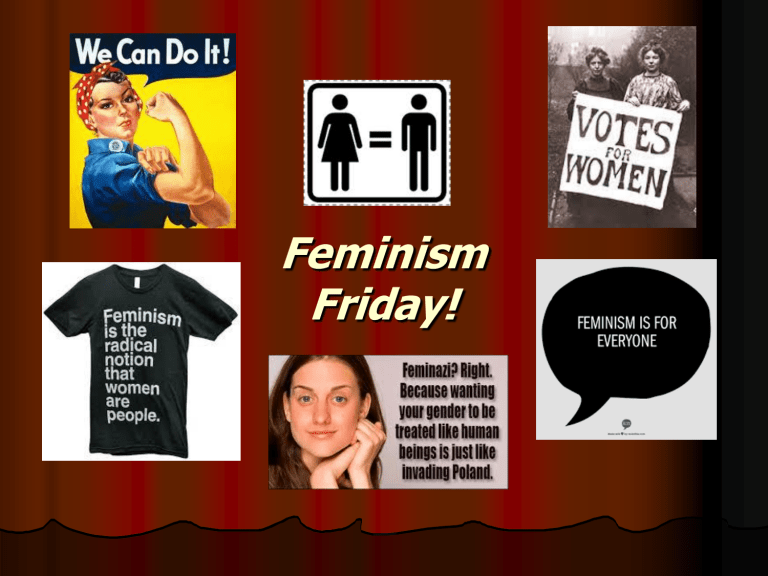
Feminism
Friday!
Feminism Defined
First-Wave Feminism
•
•
Time Period: 19 th & Early 20 th Centuries
Goal: Women’s Suffrage (Equality in Voting)
Second-Wave Feminism
•
•
Time Period: 1960’s-1980’s (emerged in conjunction w/other social protest movements of early 60’s)
Goal: Workplace Equality, Ending Legal Sex
Discrimination, & Other Social Issues
•
•
Third-Wave Feminism
Time Period: 1990’s-Present
Goal: Postmodern Redefinition of Gender Roles
(Sex/Gender Distinctions); Women in Politics; Issues of
Race, Social Class, Transgender Rights, Sexual
Liberation, Etc.
Today we will examine Colonial,
Revolutionary, and Romantic works (all pre-feminism eras) through a feminist lens…
Anne Bradstreet’s Poetry (1650)
Mary Rowlandson’s Captivity Narrative
(1682)
Abigail Adams’ Letter to John Adams
(1776)
Nathaniel Hawthorne’s
The Scarlet Letter
(1850)
Literary Criticism:
The Feminist Approach
•
Based on finding suggestions of misogyny
(negative attitudes about women) within pieces of literature & exposing them
•
Feminists argue that Western literature reflects a masculine bias & thus an inaccurate, harmful view of women
Literary Criticism:
The Feminist Approach
Three main areas of study/points of criticism:
1) Differences between men & women
2) Women in power or power relationships between men & women
3) The female experience
Literary Criticism:
The Feminist Approach
Essential questions for a feminist reading:
1) What stereotypes of women are present?
2) Do female characters play major or minor roles?
3) Do female characters have any power? If so, what kind? Political? Economic? Social?
Psychological?
Literary Criticism:
The Feminist Approach
Essential questions for a feminist reading:
4) How do the male characters talk about the female characters?
5) How do the male characters treat the female characters?
6) How do the female characters act toward the male characters?
Literary Criticism:
The Feminist Approach
Essential questions for a feminist reading:
7) How do the female characters act toward each other?
8) Are the female characters/situations oversimplified or presented fully?
9) What are the predominant images? Are they associated with women? Why/why not?
Literary Criticism:
The Feminist Approach
Essential questions for a feminist reading:
10) Do any of the work’s themes touch upon feminist issues? Is the theme supportive or disparaging of woman?
11) Overall, are the female characters believable?
Are the male characters believable?



